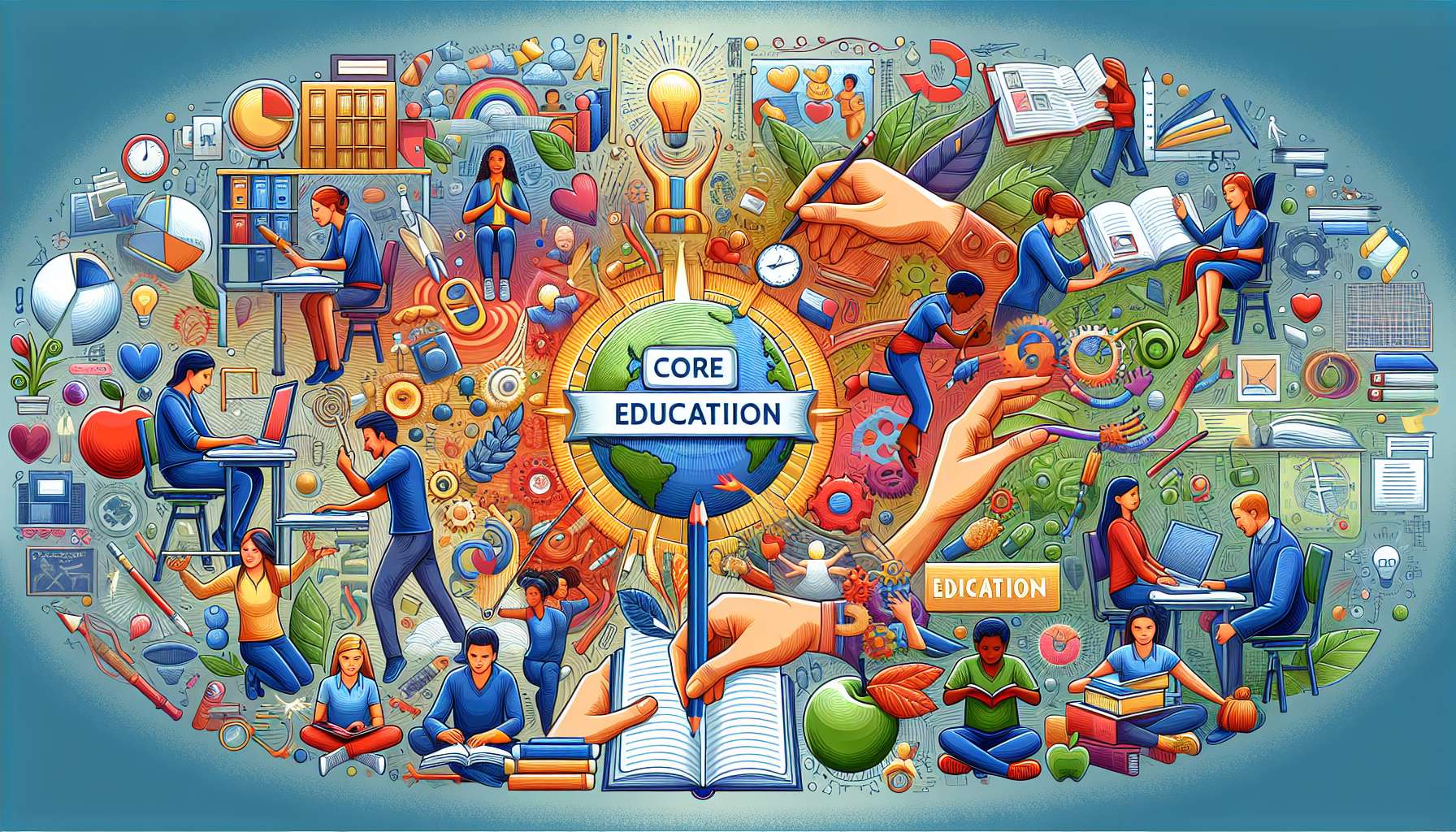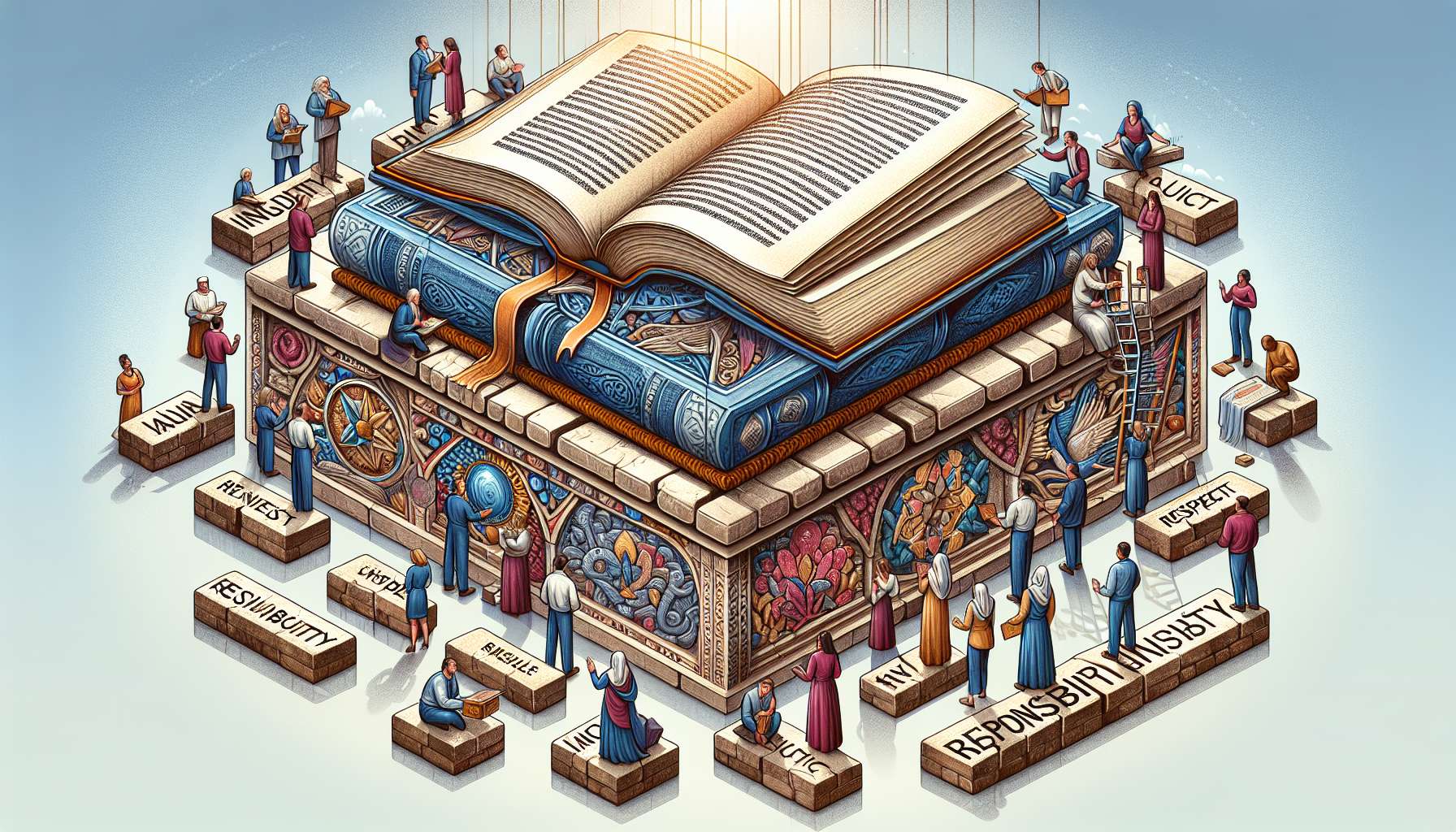Exploring Core Educational Components
Education is the foundation upon which societies build their future, and at the heart of this process lie the core educational components. These essential elements form the basis of effective teaching and learning, shaping the educational experiences of students around the world. In this comprehensive guide, we will delve into the key aspects of core educational components, examining their significance, impact, and implications in the field of education.
The Foundations of Core Educational Components
At the core of any educational system are the foundational components that shape the learning environment and facilitate the acquisition of knowledge and skills. These components encompass a wide range of elements, including curriculum design, instructional strategies, assessment methods, and educational technology. Each of these components plays a crucial role in shaping the educational experience of students and influencing their academic outcomes.
Curriculum design is one of the fundamental components of education, encompassing the selection of content, the organization of learning activities, and the assessment of student progress. A well-designed curriculum provides a clear roadmap for teachers and students, outlining the key concepts and skills that need to be mastered. By aligning the curriculum with academic standards and learning objectives, educators can ensure that students receive a comprehensive and rigorous education.
Instructional strategies are another essential component of education, encompassing the methods and techniques used to deliver instruction and facilitate learning. Effective instructional strategies engage students, promote active learning, and cater to diverse learning styles. By incorporating a variety of teaching methods, such as lectures, group work, and hands-on activities, educators can create a dynamic and engaging learning environment that meets the needs of all students.
Assessment methods are critical components of education that measure student learning and achievement. Assessment tools, such as tests, quizzes, projects, and presentations, provide valuable feedback to both students and teachers, helping to identify areas of strength and weakness. By using a variety of assessment methods, educators can gain a comprehensive understanding of student progress and tailor instruction to meet individual learning needs.
Educational technology is an increasingly important component of education, providing teachers and students with access to a wide range of digital tools and resources. Technology can enhance learning experiences, facilitate collaboration, and provide personalized learning opportunities. By integrating educational technology into the classroom, educators can create innovative and engaging learning environments that prepare students for success in the digital age.
The Impact of Core Educational Components
The core educational components have a profound impact on student learning, academic achievement, and long-term success. When implemented effectively, these components can enhance the quality of education, improve student outcomes, and foster a culture of lifelong learning. By understanding the impact of core educational components, educators can make informed decisions that benefit students and contribute to the overall success of the educational system.
Curriculum design plays a crucial role in shaping student learning experiences and academic outcomes. A well-designed curriculum provides students with a solid foundation of knowledge and skills, equipping them with the tools they need to succeed in school and beyond. By aligning the curriculum with academic standards and learning objectives, educators can ensure that students receive a comprehensive and rigorous education that prepares them for future challenges.
Instructional strategies are key drivers of student engagement and achievement. Effective instructional strategies engage students, promote active learning, and cater to diverse learning styles, ensuring that all students have the opportunity to succeed. By using a variety of teaching methods, educators can create dynamic and engaging learning environments that motivate students to learn, explore new ideas, and reach their full potential.
Assessment methods play a critical role in measuring student progress and informing instructional decisions. By using a variety of assessment tools, educators can gain valuable insights into student learning and adjust instruction to meet individual needs. Assessments provide students with feedback on their performance, helping them identify areas for improvement and set goals for future learning. By incorporating assessment data into instructional planning, educators can create targeted interventions that support student success.
Educational technology has revolutionized the way teachers teach and students learn, transforming the traditional classroom into a dynamic and interactive learning environment. Technology provides educators with powerful tools for delivering instruction, assessing student learning, and engaging students in new and innovative ways. By integrating technology into the curriculum, educators can create personalized learning experiences that cater to individual needs and preferences, enhancing student engagement and motivation.
Current Applications of Core Educational Components
The core educational components are continually evolving to meet the changing needs of students and educators in the 21st century. As technology advances and new pedagogical approaches emerge, educators are finding innovative ways to incorporate core educational components into their teaching practices. By staying abreast of current trends and best practices, educators can enhance the quality of education and improve student outcomes.
One current application of core educational components is the use of personalized learning strategies to meet the diverse needs of students. Personalized learning approaches tailor instruction to individual learning styles, preferences, and pace, allowing students to learn at their own pace and achieve their full potential. By using a variety of instructional strategies, assessments, and technology tools, educators can create personalized learning experiences that meet the unique needs of each student.
Another current application of core educational components is the integration of educational technology into the classroom. Technology tools, such as tablets, laptops, interactive whiteboards, and educational software, provide educators with powerful resources for delivering instruction, assessing student learning, and promoting collaboration. By leveraging technology in the classroom, educators can create engaging and interactive learning environments that enhance student engagement, motivation, and achievement.
Assessment methods are also evolving to meet the needs of 21st-century learners. Educators are using a variety of assessment tools, such as formative assessments, performance tasks, and digital portfolios, to measure student progress and provide timely feedback. By using multiple assessment methods, educators can gain a comprehensive understanding of student learning and tailor instruction to meet individual needs. Assessments are also being used to measure 21st-century skills, such as critical thinking, communication, collaboration, and creativity, preparing students for success in the digital age.
Curriculum design is another area where core educational components are being innovated to meet the needs of students in the 21st century. Educators are designing interdisciplinary, project-based, and inquiry-based curricula that engage students in authentic learning experiences and promote critical thinking, problem-solving, and creativity. By aligning the curriculum with real-world challenges and opportunities, educators can prepare students for success in college, career, and life.
Future Implications of Core Educational Components
As we look to the future of education, the core educational components will play an increasingly important role in shaping the educational experiences of students and preparing them for success in a rapidly changing world. By anticipating future trends and challenges, educators can adapt core educational components to meet the needs of 21st-century learners and ensure that all students have access to a high-quality education.
One future implication of core educational components is the integration of artificial intelligence and machine learning into the classroom. AI and ML technologies have the potential to revolutionize education by providing personalized learning experiences, automating administrative tasks, and enhancing student engagement. By leveraging AI and ML technologies, educators can create adaptive learning platforms that cater to individual learning needs, provide instant feedback, and support data-driven decision-making.
Another future implication of core educational components is the emphasis on 21st-century skills, such as critical thinking, communication, collaboration, and creativity. As the workforce becomes increasingly global and interconnected, students will need to develop a new set of skills to succeed in the digital age. Educators are incorporating 21st-century skills into the curriculum, assessments, and instructional strategies to prepare students for future challenges and opportunities.
Assessment methods are also evolving to meet the demands of a changing educational landscape. Educators are exploring new ways to assess student learning, such as competency-based assessments, performance tasks, and digital badges. By using innovative assessment methods, educators can gain a more comprehensive understanding of student progress, skills, and knowledge, preparing them for success in college, career, and life.
Curriculum design is another area where future implications of core educational components are being explored. Educators are designing interdisciplinary, project-based, and competency-based curricula that engage students in authentic learning experiences and promote critical thinking, problem-solving, and creativity. By aligning the curriculum with real-world challenges and opportunities, educators can prepare students for success in a rapidly changing world.
Expert Opinions
Experts in the field of education recognize the importance of core educational components in shaping student learning experiences and outcomes. According to Dr. John Hattie, a leading education researcher, “Effective teaching and learning require a strong foundation of core educational components, including curriculum design, instructional strategies, assessment methods, and educational technology. By focusing on these key elements, educators can create engaging and impactful learning experiences that prepare students for success in school and beyond.”
Dr. Linda Darling-Hammond, an education policy expert, emphasizes the role of core educational components in promoting equity and excellence in education. She states, “Core educational components are essential for ensuring that all students have access to a high-quality education. By focusing on curriculum design, instructional strategies, assessment methods, and educational technology, educators can create inclusive and engaging learning environments that meet the diverse needs of students.”
Conclusion
In conclusion, core educational components are the essential elements that shape the teaching and learning experiences of students around the world. By focusing on curriculum design, instructional strategies, assessment methods, and educational technology, educators can create engaging and impactful learning environments that prepare students for success in the 21st century. As we look to the future of education, the core educational components will play an increasingly important role in shaping the educational experiences of students and preparing them for success in a rapidly changing world. By staying abreast of current trends and best practices, educators can enhance the quality of education, improve student outcomes, and foster a culture of lifelong learning. In the words of Nelson Mandela, “Education is the most powerful weapon which you can use to change the world.”




